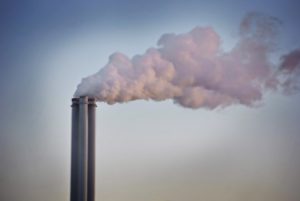
Philadelphia, PA (May 11, 2023)
This morning, the U.S. Environmental Protection Agency (EPA) issued a proposal for: (1) updated New Source Performance Standards (NSPS) to reduce greenhouse gas (GHG) pollution from new, modified, and reconstructed fossil fuel-fired power plants; and (2) Emissions Guidelines to reduce GHG pollution from certain existing fossil-fired power plants nationwide. The EPA first set carbon rules for existing power plants in the 2015 “Clean Power Plan” under the Obama administration, but those rules never took effect because the U.S. Supreme Court first stayed them, then the Trump administration repealed them. Last year, the Supreme Court issued an opinion that offered guidance to EPA on the scope of its authority. EPA is unequivocally required by the Clean Air Act to establish limits on carbon dioxide from new and existing fossil power plants.
In terms of climate pollution, Pennsylvania’s power sector is the third-dirtiest in the country. The most recent emissions data shows that carbon pollution from Pennsylvania power plants is on the rise and roughly two-thirds of in-state electricity is still generated by fossil fuels. Meanwhile, Pennsylvanians face direct injury from climate change, including lower air quality, increased flood damage, agricultural losses, and higher rates of vector-borne illnesses like Lyme disease.
Joseph Otis Minott, Esq., Executive Director and Chief Counsel of Clean Air Council, issued the following statement:
“Binding federal requirements to reduce carbon pollution from fossil fuel power plants are long overdue. EPA’s proposal is absolutely critical to combating the climate crisis and protecting the air quality and health of residents across the country. When paired with recent federal climate legislation, these rules will help our country achieve our climate commitments and preserve the chance to avoid the most catastrophic impacts of climate change. I applaud EPA for taking this important action and urge the agency to strengthen this proposal and finalize these rules without delay. It is worth noting that Pennsylvania’s participation in the Regional Greenhouse Gas Initiative (RGGI) will result in significant progress towards achieving EPA’s proposed performance standards for existing sources, and we look forward to working with state officials and stakeholders to continue transitioning Pennsylvania to a clean, carbon-free future.”

